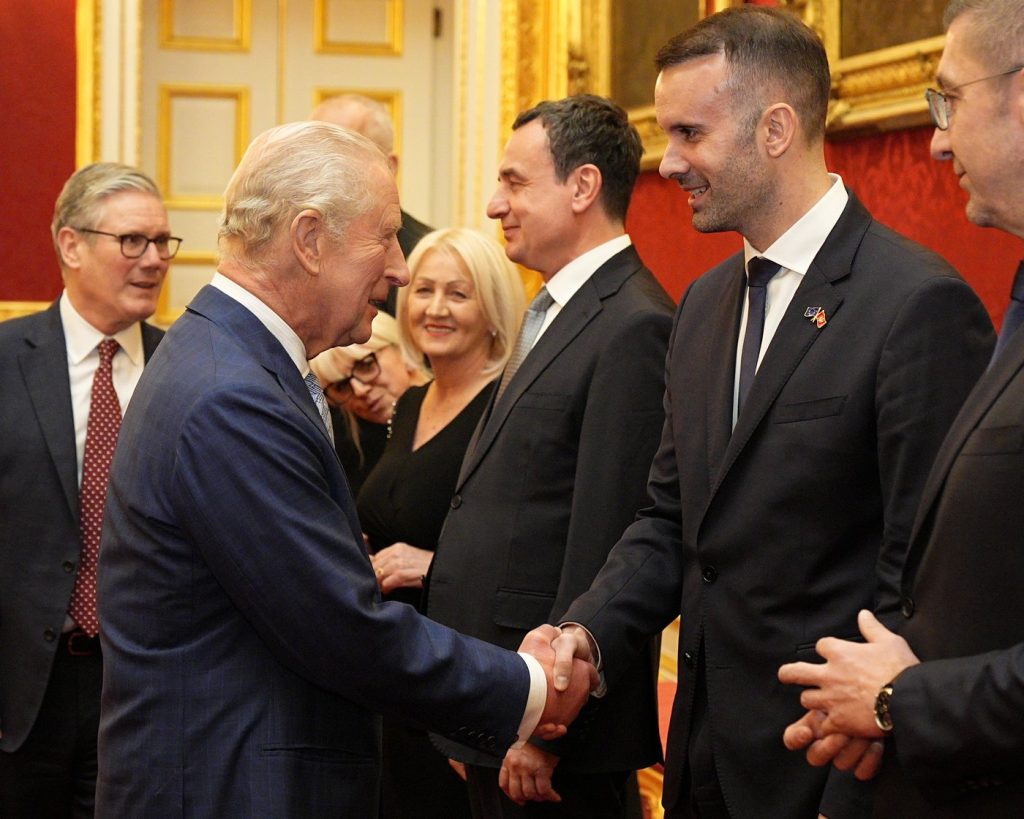LONDON (AP) - On Wednesday, leaders from six Western Balkan nations are convening with British and European officials in London for discussions aimed at addressing migration, security, and economic growth within a region characterized by ongoing volatility influenced by Russia. Delegations from Albania, Bosnia, Kosovo, Montenegro, North Macedonia, and Serbia are attending the summit as part of the Berlin Process, which was initiated in 2014 to assist southeastern European countries in their journey toward European Union (EU) membership.
The only Western Balkan nation that has successfully joined the EU thus far is Croatia, which became a member in 2013. Meanwhile, the progression of the remaining countries has stagnated, often marked by rising tensions, particularly between Serbia and Kosovo. Kosovo declared independence from Serbia in 2008, a status that is still not recognized by Belgrade. The EU's inclination to accept new members has increased since Russia's full-scale invasion of Ukraine in 2022, raising concerns that the conflict could further destabilize the already fractious region, which has a history of its own conflicts.
Despite leaving the EU in 2020, the United Kingdom is hosting this significant annual summit. The event will also welcome representatives from various European nations and EU institutions. Prime Minister Keir Starmer's center-left government is eager to address several critical issues during the summit, including combating drug trafficking, strengthening defenses against Russian interference, and tackling unauthorized migration, which is a major priority for the British government.
In recent years, criminal gangs have smuggled hundreds of thousands of individuals to the EU through the Western Balkans, and it is reported that approximately a quarter of the migrants arriving in the U.K. via small boats across the English Channel have traversed this region. The United Kingdom aims to build upon a joint task force established with Albania that has contributed to significant reductions in the number of Albanian migrants attempting to reach the U.K. — from 12,000 in 2022 to a projected 600 in 2024. Additionally, Britain has deployed law enforcement officers to work alongside the EU border agency, Frontex, and is actively seeking support from other countries to establish “return hubs” where rejected asylum-seekers could be detained pending deportation.
However, the responses from the leaders of Albania and Montenegro indicate hesitancy regarding the implementation of these return hubs. Prime Minister Edi Rama of Albania firmly stated, “When it comes to the hubs, or whatever they are called, I’ve said it, and I repeat — never in Albania.” Similarly, Montenegro’s Prime Minister Milojko Spajic remarked that although his country is “not part of the migrant routes through the Balkans” due to inadequate railway infrastructure, he might consider hosting a migrant returns hub contingent upon a significant investment of 10 billion euros from Britain to develop the necessary railways.
The ongoing discussions represent a critical effort to navigate the myriad challenges facing the Western Balkans, particularly in light of external pressures from Russia and internal issues related to migration and economic development. As the summit unfolds, the commitments made by participating nations and the responses to UK proposals will be pivotal in determining the future trajectory of cooperation and stability in the region.











